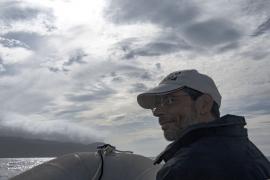S.P. Ávila graduated in Biology in 1995, completed a MSc in Insular Ecology and Evolution in 2001, and a PhD degree in Biology/Palaeontology in 2005 from the University of the Azores. He supervised 10 PhD students (6 in progress), 1 MSc and 10 internships. In 2005, he established his research group (MPB-Marine Palaeontology and Biogeography Lab), now with 18 members. He participated in 16 research projects, with regional, national, or European funding, and published 78 SCI articles, 28 articles in other journals, 10 books and 6 chapters of books, and edited 7 books. He organized 16 advanced courses, 33 congresses and 31 scientific expeditions in the Azores, Madeira, Canaries and Cabo Verde archipelagos. He is a member of the Advisory Board of the “Santa Maria PalaeoPark”, appointed by the International Palaeontological Association. He is also the Scientific Advisor of the "Fossils’ House" Museum, at Santa Maria Island (Azores). Since 2005, he has been studying the patterns and processes of dispersal, colonization and speciation of shallow-water marine invertebrates in oceanic islands. He is the main author of the most recent theory of marine island biogeography, the SLS – Sea-Level-Sensitive model of marine island biogeography. His team has expertise in marine molluscs, echinoderms, crustacean barnacles, ostracods, bryozoans and coralline algae forming rhodoliths. His main interests are the geological evolution of the NE-Atlantic islands, and the palaeontology, palaeoecology and palaeobiogeography of the Neogene to Recent ecosystems in reefless volcanic oceanic islands. He is Associate Editor of Frontiers of Biogeography and of Frontiers in Marine Science, Subject editor of Biodiversity Data Journal, and an Editorial Board Member of Journal of Marine Science and Engineering, and Reviewer Board of Diversity. He is Taxonomic editor of the Paleobiology Database (https://paleobiodb.org/classic).
(For details, see: https://www.researchgate.net/profile/Sergio-Avila-7 and
https://www.researchgate.net/lab/MPB-Marine-Palaeontology-and-Biogeography-lab-Sergio-P-Avila)



